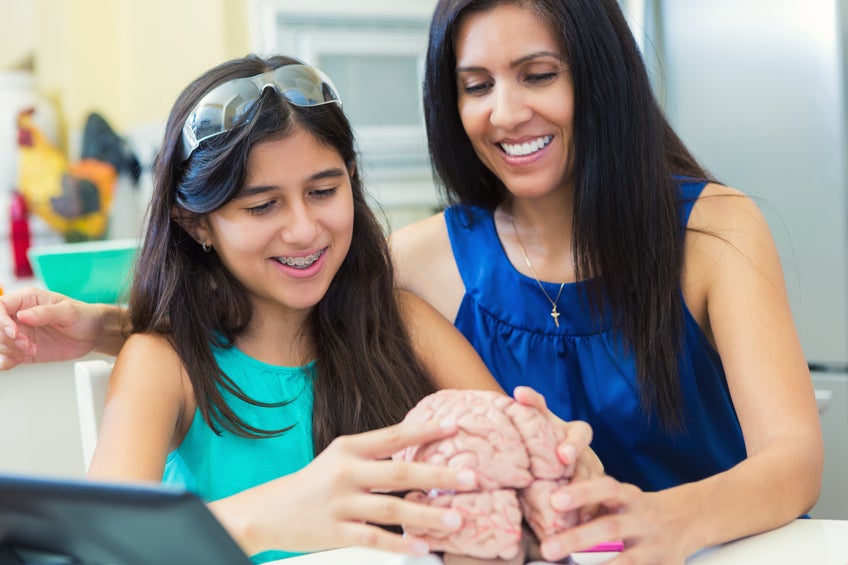by Ryan Burgess
How can we achieve a high quality education? One of the answers may come from the field of neuroscience. The following are 3 insights on brain development that can improve our understanding of how students learn and develop throughout their lives.
1. Brain development in early childhood and adolescence is key
The brain goes through a development and maturation process that starts before a baby is born and continues on through their early 20s. During early childhood, and particularly in the first three years of a child’s life, the brain undergoes its greatest growth and development period, making it far more impressionable compared to the brain of an adult. In fact, Harvard University’s Center on the Developing Child has concluded that “the development of a child’s brain architecture provides the foundation for all future learning, behavior, and health.” Not surprisingly, negative experiences that we have early in life can have lasting consequences, even through adulthood. In adolescence, too, the brain goes through significant changes. Emotionally charged responses, for instance, are greater in adolescence compared to childhood or adulthood.
However, brain development, similar to overall child development, is also affected by factors such as interaction with family, friends and the community, in addition to personal traits and genes. As the IDB’s publication The Early Years: Child Well-being and the Role of Public Policy puts it, child development —physical, communicational, cognitive, and socio-emotional— is “shaped by the experiences children accumulates at home, in daycare centers, and at school”. Parents, relatives, other caregivers, teachers, and government all have a hand in shaping those experiences,” which have an important effect in the brain maturation process.
2. Chronic stress affects learning
In neuroscience, we understand that chronic stress environments can have a direct effect on brain development of very young children and adolescents. Biological measures of the brain’s gray and white matters, as well as cerebral functions, can give us clues about the effects of stress. These quantitative effects are directly correlated with psychological and educational outcomes. For instance, chronic exposure to stress can lead to extremely emotional responses to normal, daily stress, affecting a child’s confidence. It can also affect the development of the brain’s pre-frontal cortex, which impacts self-regulation, planning and executive function.
Children and youth raised in high risk communities, where they face numerous adversities such as poverty, community violence, unstable family environments, limited basic services among others, essentially live in chronic stress conditions. This helps explain why, according to the results from the PISA 2012 assessments, poorer students in Latin America lag behind about two years of schooling compared to their richer peers in math, reading and science. Neuroscience can help us explain how such conditions can directly impact these children’s brain development and learning, increasing the need for teachers and educators to understand how to adjust schools and pedagogy to adequately meet the needs of these students.
3) Relevant classroom activities can lead to visible improvements in brain development within a short period of time
Developing relevant activities and providing appropriate support within a positive school environment can result in visible improvements in brain development within a short period of time. The focus should be placed on giving teachers the tools necessary to create positive experiences and interactions that lead to these improvements, not only in the child’s or young person’s neurodevelopment but also in their cognitive, social, and emotional development. These interventions can help improve not only learnings in the classroom but also behavior. For example, teachers can implement practical approaches to strengthen executive function; some schools use meditation and neuroscience to help improve behavior. The IDB is currently working on improving its understanding of how neuroscience can contribute to providing a high quality education through projects in Brazil, El Salvador and Honduras, where we will learn more about the neurodevelopment of youth in violence-affected and high stress environments, the impact it may have on their learning outcomes, and how some youth may strengthen their resilience to counter the potential negative effects of these adverse experiences.



Leave a Reply